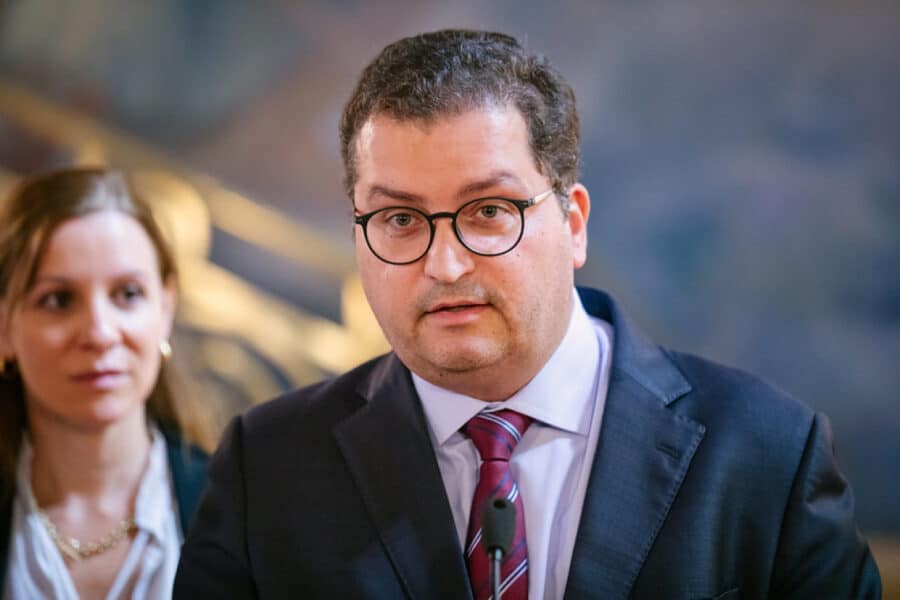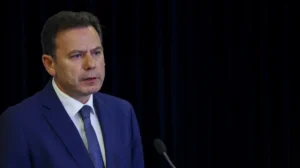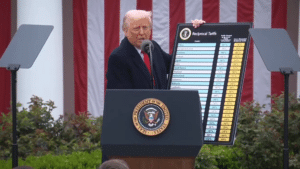European Commission’s plan designed to bolster European security as US pulls back
Portugal has welcomed the European Commission’s intention to ease budgetary rules to allow more defence spending (even for heavily-indebted countries).
Speaking today in Brussels, finance minister Joaquim Miranda Sarmento said that “greater flexibility will naturally also help Portugal maximise its military capacity and invest more in this area, without jeopardising other areas” – despite the fact that the country is nowhere near its former state of indebtedness, and currently running with a budgetary surplus.
“We are going to see what the Commission actually proposes and what the countries are also willing to accept”, he said.
With the European Union (EU) studying how to finance the reinforcement of its military capabilities, Miranda Sarmento repeated the well-rehearsed mantra that “social and other commitments that states have towards their populations should be maintained” irrespective of what countries decide to spend.
The finance minister alluded to the fact that ‘military equipment is not exactly on sale at the local supermarket’ – but where it is on sale, share prices today are soaring. “German arms maker Rheinmetall (RHMG.DE) gained as much as 11% to a record high, while Sweden’s Saab AB (SAABb.ST) and Britain’s BAE Systems (BAES.L) advanced 11% and 6% respectively. Italy’s Leonardo (LDOF.MI) and France’s Thales (TCFP.PA) both rose more than 5%, while Thyssenkrupp (TKAG.DE), which is looking to spin off its warship division TKMS, rose nearly 20% to its highest in more than a year”, reports Reuters.
The need to significantly increase defence spending came as the US has said that it no longer sees European security as its primary focus.
European Commission president Ursula Von der Leyen told the Munich Security Conference last weekend that she will propose the “activation of the escape clause for defence investments (… to) allow member states to substantially increase their defence spending. Of course we will do it in a controlled and conditional way”, taking into account the budgetary situation of each country.
As previous reports have explained, calculations by the European Commission released last June show that additional investments in defence of around €500 billion will be needed over the next decade to ensure the bloc is adequately defended against potential threats.
Miranda Sarmento said he hopes solutions will be found that involve military co-operation and co-ordination between the 27 member states – suggesting that Portugal could equally buy-in to the idea of a European army, as advocated most recently by Ukraine’s president Zelenskyy.
With European leaders meeting in Paris today to discuss both Ukraine, and the security of Europe, the finance minister also downplayed the fact that Portugal is not at the table, saying that “the important thing is that Europe is coordinated, united and takes decisions for the 27”. ND
Source: Lusa/ Reuters




















